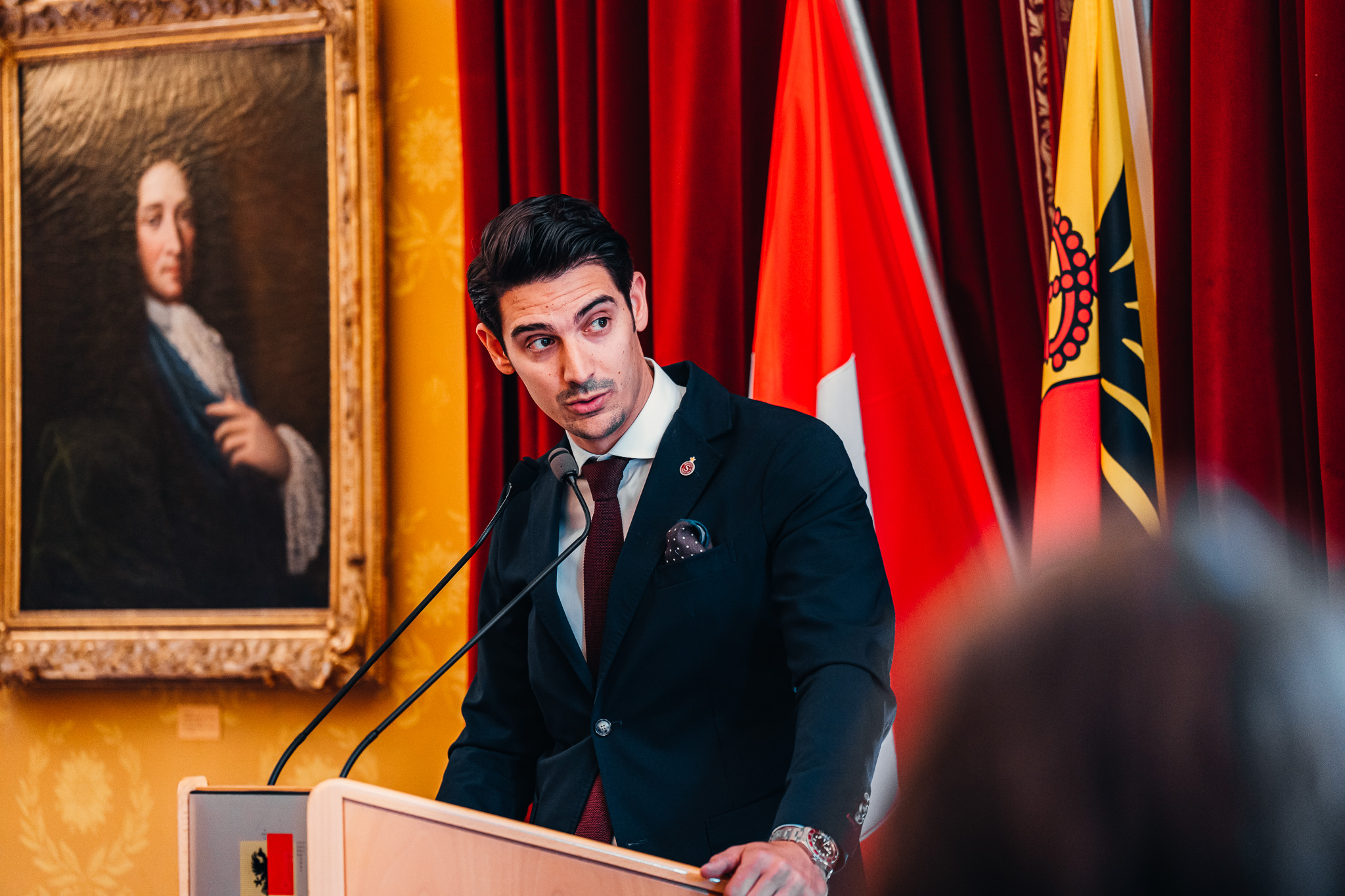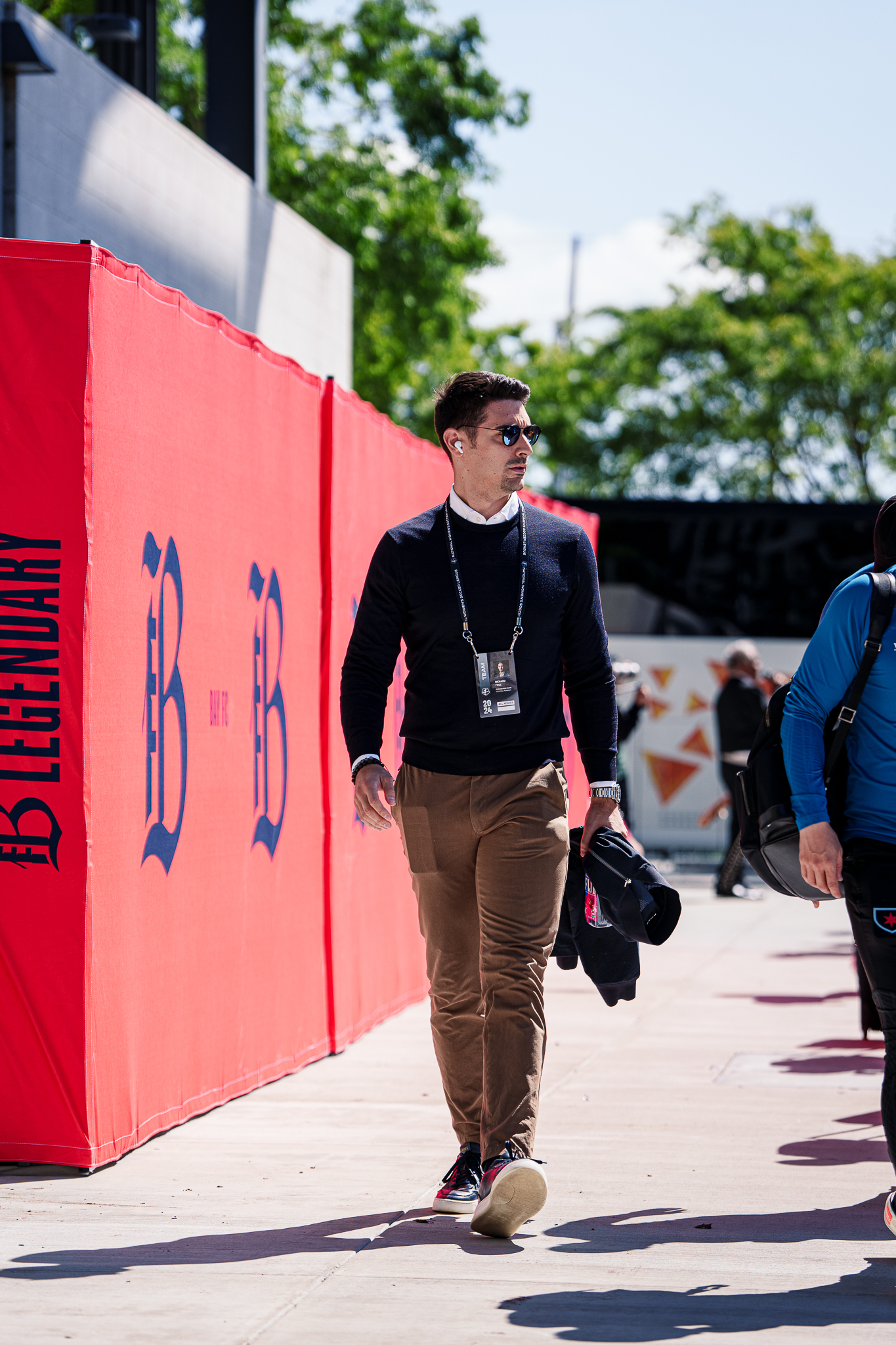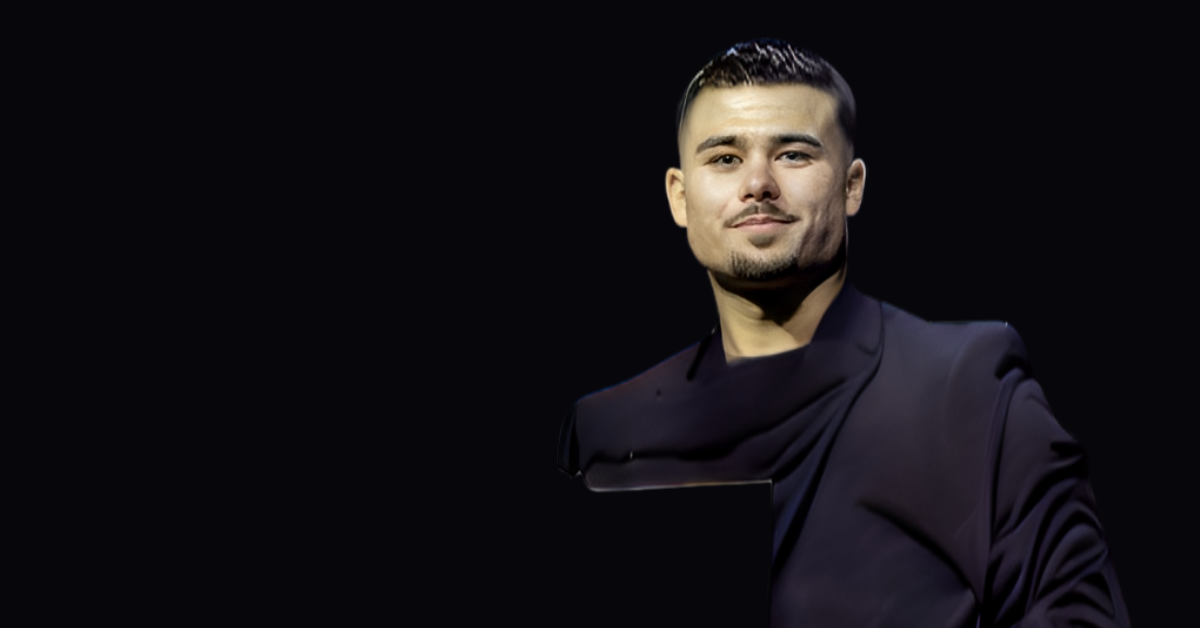Interview
Richard Feuz
Hello Richard,
We are delighted to introduce Richard Feuz, an alumnus of the École Hôtelière de Genève (EHG) with an exceptional career path. From his early days in Geneva, where he grew up with a passion for soccer, to his current role as General Manager of Chicago Stars FC, one of the leading clubs in the National Women’s Soccer League (NWSL ) in the USA, Richard Feuz embodies the perfect marriage between Swiss rigor and international sporting innovation.
In this interview, Richard looks back on his career path, from his studies in Law and International Relations at the University of Geneva to his decision to join EHG, which has profoundly shaped his approach to management and shaped his rise in the sports industry. He shares with us his vision of leadership in a constantly evolving sector, as well as the challenges and opportunities involved in managing a leading soccer club.
Discover the inspiring story of a leader who combined passion, strategy and innovation to make his mark on the international scene.
First of all, thank you for this interview. You grew up in the region with a passion for soccer. Could you tell us a little about your background?
Born to Spanish-Swiss parents, I grew up in Geneva, surrounded by a passion for soccer and Servette FC 1890 from an early age. As a child and teenager, I spent hours playing soccer in the parks and on the local pitches with my friends and my respective teams, and this passion continues to stay with me today.
After finishing secondary school, I began by studying Law and International Relations at the University of Geneva, which is how I realized that I wanted to combine my academic skills with my passion for sport. It was a former director who convinced me to join the École Hôtelière de Genève (EHG) to acquire skills in management, leadership and administration.
This decision was decisive for the rest of my career, and I’ll always be grateful to him for it, as it enabled me to acquire a global vision of the management of complex organizations, to grasp operational rigor and to develop a keen sense of service, essential assets for successful leadership in the sports industry.
Before moving into the hotel business, you studied Law and International Relations at the University of Geneva. What motivated your transition to the École Hôtelière de Genève (EHG), and how has this experience shaped your career path?
My transition to EHG was motivated by my desire to acquire management skills applicable to different sectors. Looking back, the school was a strategic choice for me, as it offered not only a high-level theoretical training, but above all a practical approach to management, integrating human resources management, mastery of operations, as well as the ability to lead multicultural teams.
It was this unique combination of skills, combined with a certain academic rigor, that enabled me to quickly prove myself and stand out in a sector as competitive as sport. What’s more, the school’s international setting opened my eyes to the importance of adaptability and innovation, values that I still try to apply on a daily basis.
How did you go from EHG to becoming the youngest General Manager of a professional soccer club in Switzerland, at Servette FC?
During my studies at EHG, I had the opportunity to do my second internship with Servette FC, an experience that was decisive for the rest of my career. This first contact with professional sport gave me an insider’s view of how a club operates, and an insight into the complexities of sports management.
After this internship and a spell atUEFA, I was hired as Project Manager at Servette FC as soon as I graduated. Thanks to the confidence of my managers, I was able to demonstrate my ability to lead projects and unite teams around a common vision. I was initially responsible for launching Servette FC’s women’s section, which quickly became a model of development and professionalization in Switzerland.
In 2018, I took over the management of Servette FC Chênois Féminin(Servette FCCF), and subsequently the presidency. At the same time, I was entrusted with the general management of the men’s club at the start of 2020. These experiences have enabled me to apply hotel management principles to a sporting environment, with an emphasis on strategic development, talent management and long-term value creation.

Servette FC has enjoyed a great deal of success in recent years. You must be proud of what you've set up and achieved there. Can you tell us about these experiences and what you've achieved?
I’m extremely proud of the results and development of Servette FC as a whole in recent years. The club’s success is the result of a holistic approach, combining the optimization of sporting performance, the development of a strong club culture and commitment to the fans.
The launch of the women’s section, which has won several national titles and reached the final stages of the Champions League in its short history, is an emblematic example.
As CEO, my role was to create an environment conducive to the development of players and staff, combining sporting and financial strategy with corporate vision, in the complex situation that was the start of the COVID-19 pandemic.
Thanks to extraordinary work teams, we have been able to innovate on and off the field at a key moment in the club’s development. These successes are the fruit of dedicated teams, rigorous strategic planning and a constant commitment to excellence on the part of everyone at the club.
Servette FC has enjoyed a great deal of success in recent years. You must be proud of what you've set up and achieved there. Can you tell us about these experiences and what you've achieved?
I’m extremely proud of the results and development of Servette FC as a whole in recent years. The club’s success is the result of a holistic approach, combining the optimization of sporting performance, the development of a strong club culture and commitment to the fans.
The launch of the women’s section, which has won several national titles and reached the final stages of the Champions League in its short history, is an emblematic example.
As CEO, my role was to create an environment conducive to the development of players and staff, combining sporting and financial strategy with corporate vision, in the complex situation that was the start of the COVID-19 pandemic.
Thanks to extraordinary work teams, we have been able to innovate on and off the field at a key moment in the club’s development. These successes are the fruit of dedicated teams, rigorous strategic planning and a constant commitment to excellence on the part of everyone at the club.

What skills and character traits are needed to succeed in sports management today?
To succeed in sports management today, you need to have a clear vision, take responsibility and inspire your teams.
Skills in leadership, communication and strategy are essential, but you also need to be able to make decisions quickly in an environment that is linked to sporting results and constantly changing. Management in sport also requires an excellent understanding of human dynamics, as every decision has an impact on many players. Integrity, passion, resilience and the ability to motivate others are essential.
Finally, we need to be able to adapt to new trends, whether in data analysis, athletic performance, or event management to meet fans’ expectations.
Congratulations on your new role as General Manager of the Chicago Red Stars for the past eight months. How was the transition from Switzerland to the USA?
The transition from Switzerland to the USA has been as sudden as it has been rewarding and challenging. Adapting to a new culture, a new market and an organization in the throes of change requires great flexibility and a constant ability to adapt.
I found many similarities between the Swiss rigor and the American entrepreneurial spirit. This new role has also prompted me to review my management methods to take account of local specificities, while capitalizing on the skills I acquired in Europe.
Working in women’s soccer in the United States, in one of the best leagues in the world where the sport is booming, is a unique opportunity. I’m delighted to be able to contribute to the rebuilding project to make Chicago Stars FC a benchmark.
Can you share some tips and tricks for success in sports management and sports marketing?
There’s no magic formula, but it’s essential to remember that we’re just passing through the history of these clubs, and that it’s a privilege to be able to make a living from our passion, especially in sport. Humility is paramount, and we must always remember that a club’s raison d’être lies with its athletes first and foremost. Our role is to do everything in our power to optimize their daily lives, because their performance on the field largely determines our success and that of the institution.
Sport is a deeply emotional field, and knowing how to capture and nurture these emotions is crucial. But it’s just as important to be able to put them aside as a manager and make rational decisions at key moments. Innovation, data analysis and the ability to anticipate trends are strategic levers, just as they are in most management professions.
Building strong relationships, cultivating a culture of excellence and investing in talent development are also essential to success. Finally, never lose sight of the importance of having a clear vision and knowing how to communicate it in a way that inspires your team and all stakeholders.





